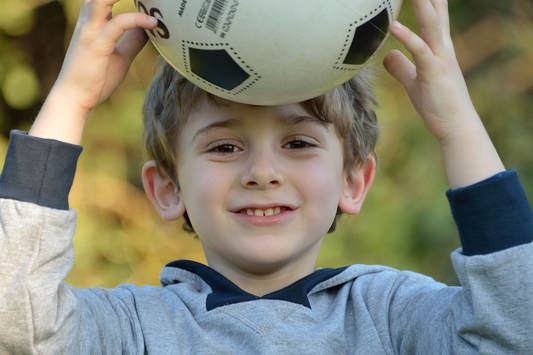Biased Expectations |
Page 9 |
All humans have experiences that yielded either positive or negative results. Some of these experiences give our self-esteem a boost or take it down a notch. Biased expectations are negative thoughts or assumptions about yourself that come up when you may participate in a situation that makes you feel uneasy. These expectations can hinder positive self-esteem and drastically change behaviors. Children have biased expectations for themselves that will at times alter their behavior and reactions to certain situations.
Scenario
|
William, a first grader, is refusing to participate in an organized recess game of kickball. He tells his friends that he has a stomach ache so that he doesn’t have to play. His teacher, Ms. Jones, comes over to talk to him after hearing about his stomach ache. She concludes that William was too afraid to play kickball because he doesn’t think he is very good at the game.
|
William has allowed his biased expectations to influence him so greatly, that he missed out on a very fun and important part of the day. Most likely, when his friends began to make their kickball game plans, William was thinking negative thoughts about his game-playing abilities. He may have had a negative experience playing a similar game and is now convinced that he is terrible at all team sports. He quickly turned his biased expectation into a false excuse to sit out of this game at recess. He is avoiding the game for fear of a negative result.
The Teacher's Role
It is important to never force a child into an activity that they are weary of. If Ms. Jones had forced William to participate in the game, this may have only made his biased expectations stronger as well as giving him a great deal of anxiety and fear. Ms. Jones did the right thing by talking to William, but could have taken this a step further by discussing some helpful tips and suggestions with him.
It is important to never force a child into an activity that they are weary of. If Ms. Jones had forced William to participate in the game, this may have only made his biased expectations stronger as well as giving him a great deal of anxiety and fear. Ms. Jones did the right thing by talking to William, but could have taken this a step further by discussing some helpful tips and suggestions with him.
Improving Self-Esteem
Interacting with children carries with it the responsibility of doing everything in your power to improve and help build their self-esteem. Children have a developing sense of self and are in a critical period where their self-esteem ebbs and flows often. They are building skills and capabilities that will impact their self-esteem for many years to come. Teachers, parents, friends, family members and caregivers are at the center of this evolving self-esteem.
It is important for educators to:
It is important for educators to:
- Support a child’s positive self-esteem
- Listen to their concerns when they are ready to talk
- Encourage children to take risks and try things more than once
- Communicate their strengths and give them opportunities to practice them



